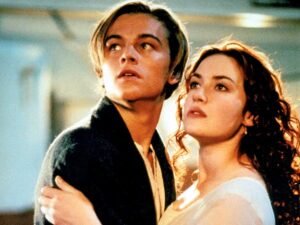Urban fantasy is a genre that intricately weaves the magical with the modern, often setting supernatural elements against the backdrop of contemporary urban life. One of the key aspects that add depth and intrigue to urban fantasy novels is the incorporation of mythology. By blending mythic elements with the urban landscape, authors create rich, multifaceted worlds that captivate readers and offer fresh perspectives on ancient tales. This blog explores the pivotal role of mythology in urban fantasy novels and how it enhances storytelling.
Mythology’s Influence on World-Building
Rich, Layered Worlds
Mythology provides a foundational layer for world-building in urban fantasy. By incorporating mythological creatures, gods, and magical systems, authors create intricate and immersive worlds. For example, in Neil Gaiman’s American Gods, a pantheon of deities from various mythologies competes for relevance in modern America. This not only enriches the narrative but also offers readers a deep, culturally resonant backdrop.
Historical Depth
Integrating mythology into urban fantasy lends historical depth to the story. Myths and legends are often rooted in real-world history, and their inclusion helps build a connection between ancient traditions and contemporary settings. By referencing mythological events or figures, authors can create a sense of continuity between the past and present, making the urban fantasy world feel more authentic and historically rich.
Mythological Archetypes and Character Development
Diverse Characters
Mythology provides a wealth of archetypes that urban fantasy authors can draw upon to create diverse and compelling characters. Characters based on mythological beings—such as gods, demigods, or mythical creatures—bring unique traits and conflicts to the story. For instance, in Rick Riordan’s Percy Jackson series, modern-day teenagers discover they are the children of ancient Greek gods, which shapes their identities and drives the plot.
Complex Motivations
Mythological backgrounds often come with their own sets of motivations and conflicts. Characters influenced by mythology may grapple with age-old rivalries, quests, or destinies, adding complexity to their personal journeys. This can enhance the emotional depth of characters, as seen in the Women of the Otherworld series by Kelley Armstrong, where the protagonists are supernatural beings struggling with their mythic heritage.

Mythology and Plot Development
Epic Quests and Conflicts
Many urban fantasy novels feature epic quests and conflicts that are reminiscent of classic myths. These quests often involve battling ancient evils, uncovering lost artifacts, or resolving long-standing feuds. By aligning their plots with mythological themes, authors create narratives that feel grand and momentous. For example, in The Iron Druid Chronicles by Kevin Hearne, the protagonist engages with gods and magical beings from various mythologies, driving the plot through epic, myth-infused adventures.
Symbolism and Themes
Mythology offers rich symbolism and thematic elements that can deepen the narrative. Themes such as heroism, sacrifice, and fate are prevalent in myths and can be effectively incorporated into urban fantasy plots. This not only adds layers of meaning but also connects readers to universal themes. In The Dresden Files by Jim Butcher, mythological references enrich the themes of power and morality, adding depth to the story’s conflicts and resolutions.
Mythology in Urban Settings
Blending the Ancient and Modern
One of the distinctive features of urban fantasy is its ability to blend ancient mythological elements with contemporary urban settings. This juxtaposition creates a unique atmosphere where the magical and the mundane coexist. For instance, in Rivers of London by Ben Aaronovitch, the modern city of London is intertwined with magical folklore and deities from various mythologies, creating a rich, dynamic setting.
Urban Legends and Folklore
Urban fantasy often incorporates local myths, urban legends, and folklore into its narratives. These elements add a sense of locality and realism to the magical world. By integrating urban legends with mythological themes, authors create stories that feel both grounded and fantastical. In The Nightside series by Simon R. Green, the hidden supernatural world of London is populated with creatures and myths drawn from various cultural traditions.
Conclusion
Mythology plays a crucial role in urban fantasy novels, enriching world-building, character development, and plot dynamics. By integrating mythological elements into modern settings, authors create immersive and multifaceted worlds that captivate readers and offer fresh perspectives on ancient tales. As urban fantasy continues to evolve, the influence of mythology remains a vital aspect, providing depth and resonance to contemporary magical narratives.
Urban fantasy’s ability to blend the ancient with the modern offers readers a unique and compelling reading experience. Whether through epic quests, complex characters, or richly detailed settings, mythology enhances the genre and keeps readers engaged with its enchanting worlds.

